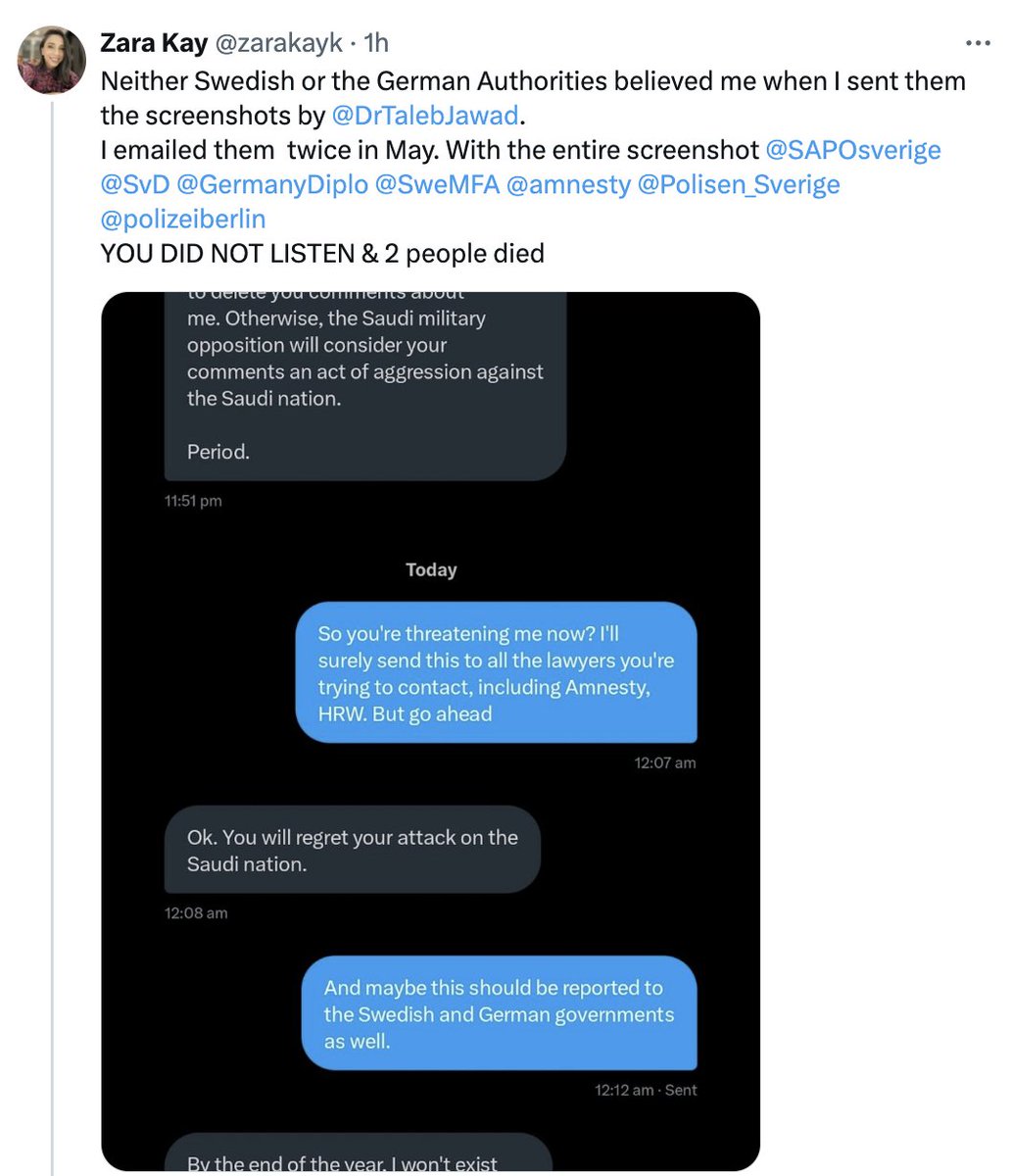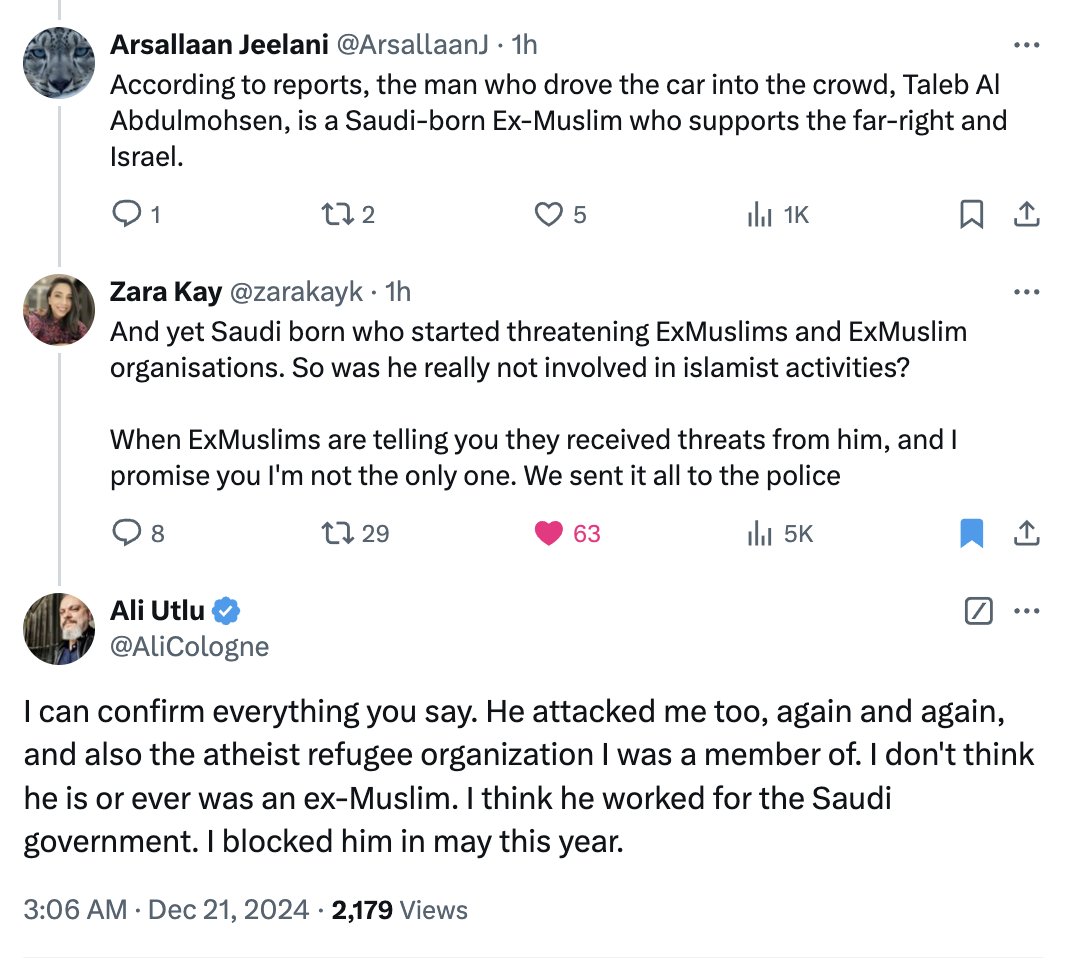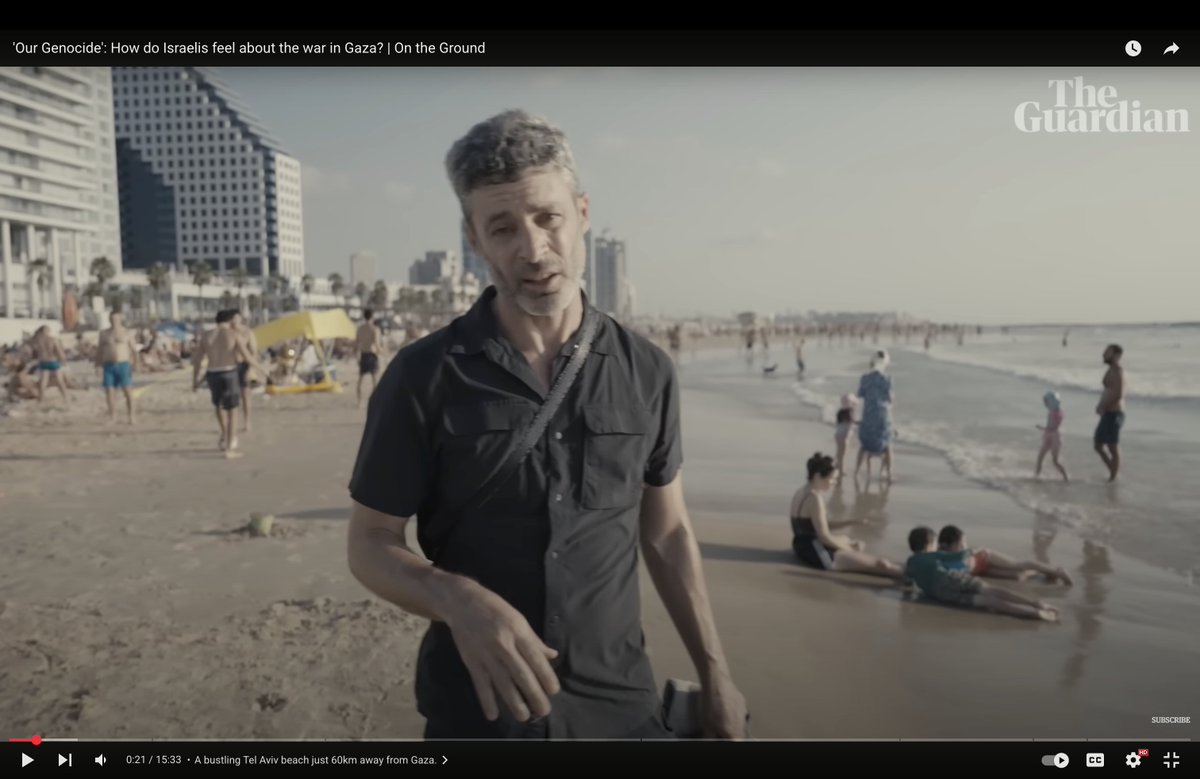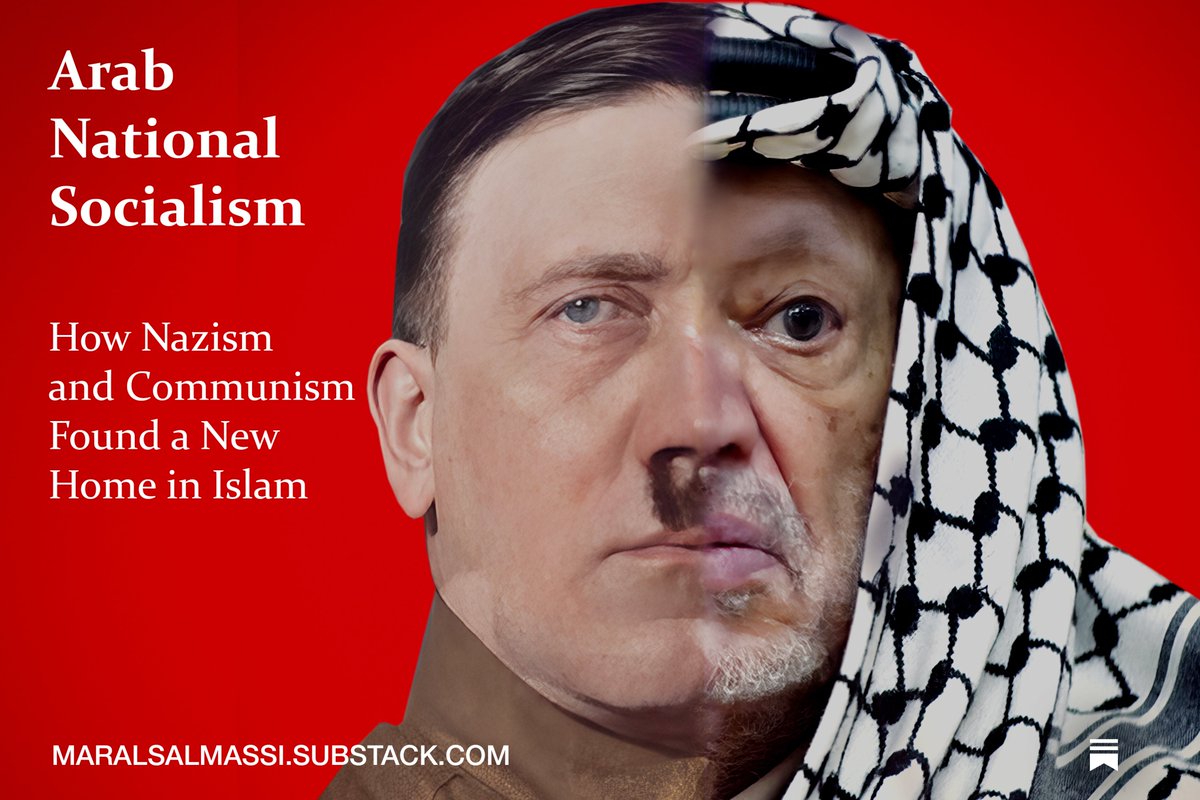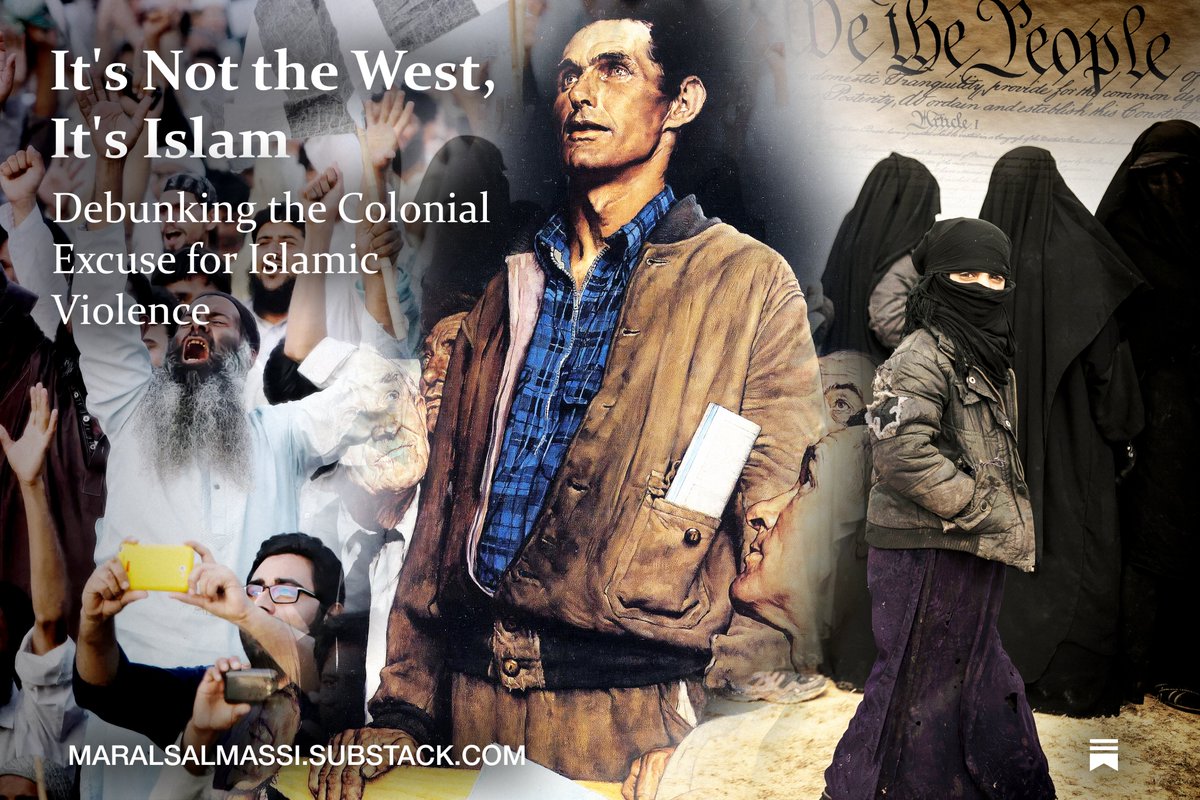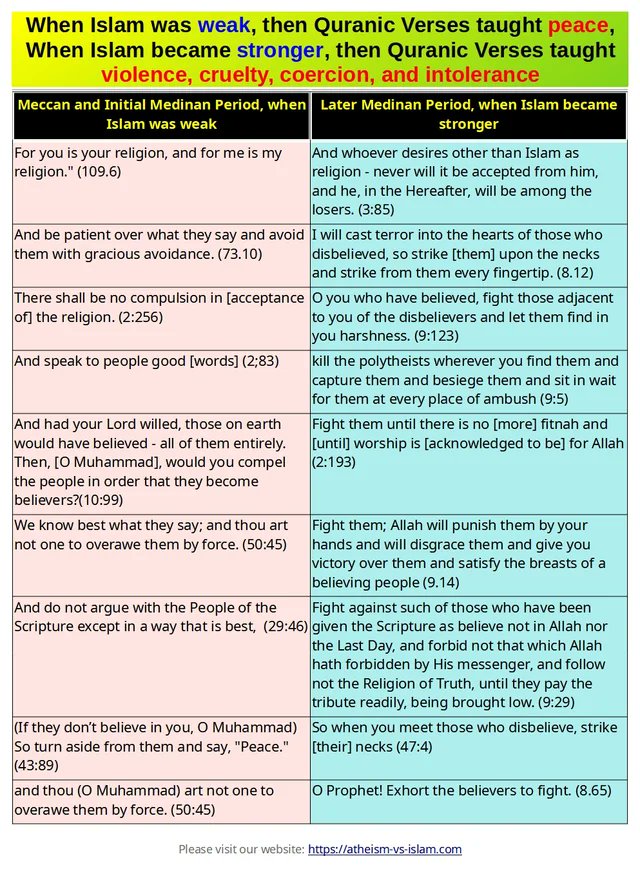Despite claims made by the German press, Taleb Al Abdulmohsen is not an ex-Muslim atheist, nor is he a fan of the AfD or Elon Musk. While he may have spread this misinformation himself, it aligns with the practice of Taqqiye, an Islamic doctrine that permits lying and deception to advance Islamic objectives.
In reality, he is a radical Shia Muslim, as evidenced by his name and numerous tweets and chat leaks circulating on Arabic-speaking platforms like X. Disturbingly, his plans to carry out mass killings of Germans were brought to the attention of German authorities by a Saudi woman. Tragically, the police ignored her warnings.
The links are added in the thread.
#magdeburg #Maagdenburg
In reality, he is a radical Shia Muslim, as evidenced by his name and numerous tweets and chat leaks circulating on Arabic-speaking platforms like X. Disturbingly, his plans to carry out mass killings of Germans were brought to the attention of German authorities by a Saudi woman. Tragically, the police ignored her warnings.
The links are added in the thread.
#magdeburg #Maagdenburg
• • •
Missing some Tweet in this thread? You can try to
force a refresh

